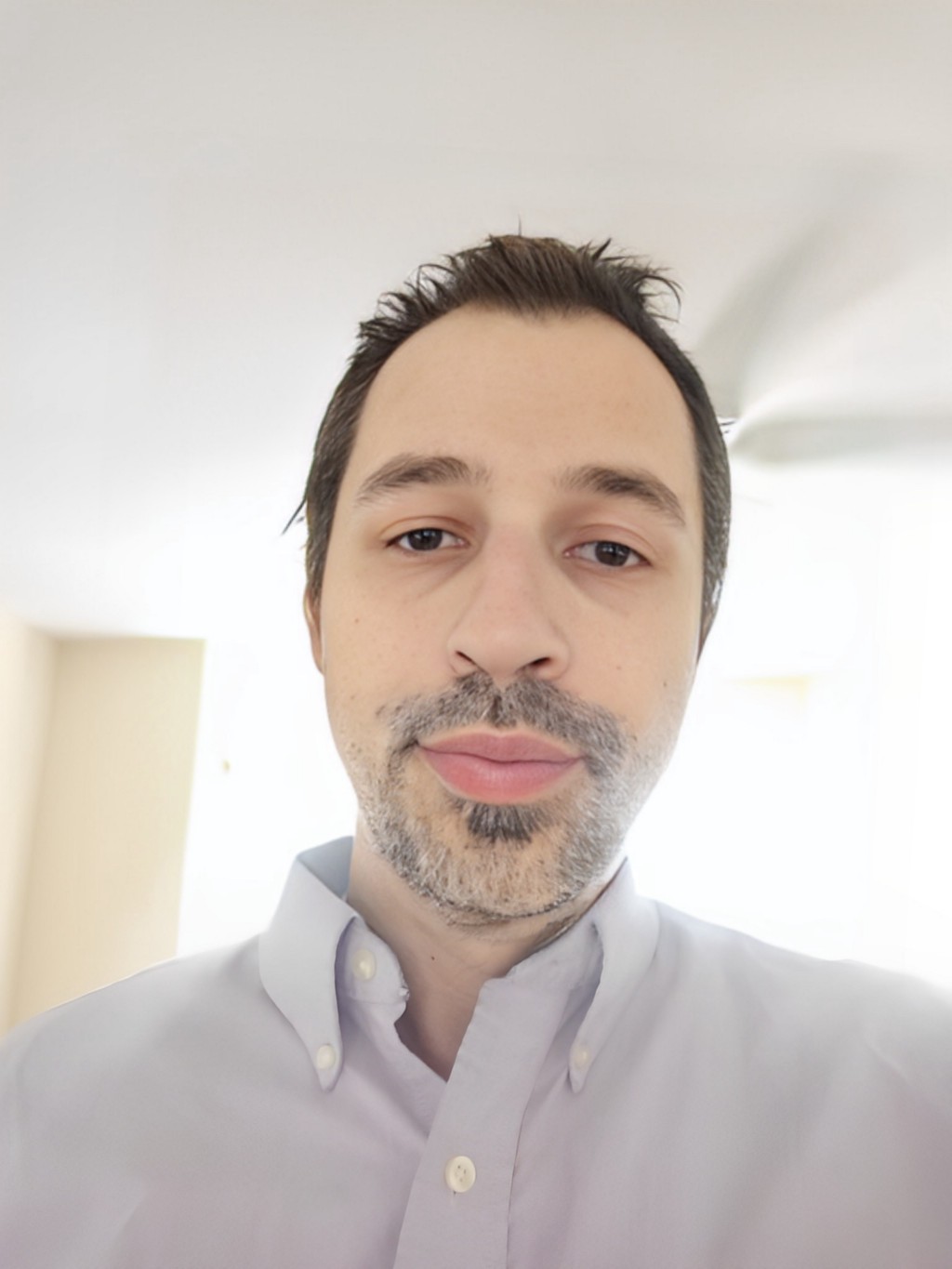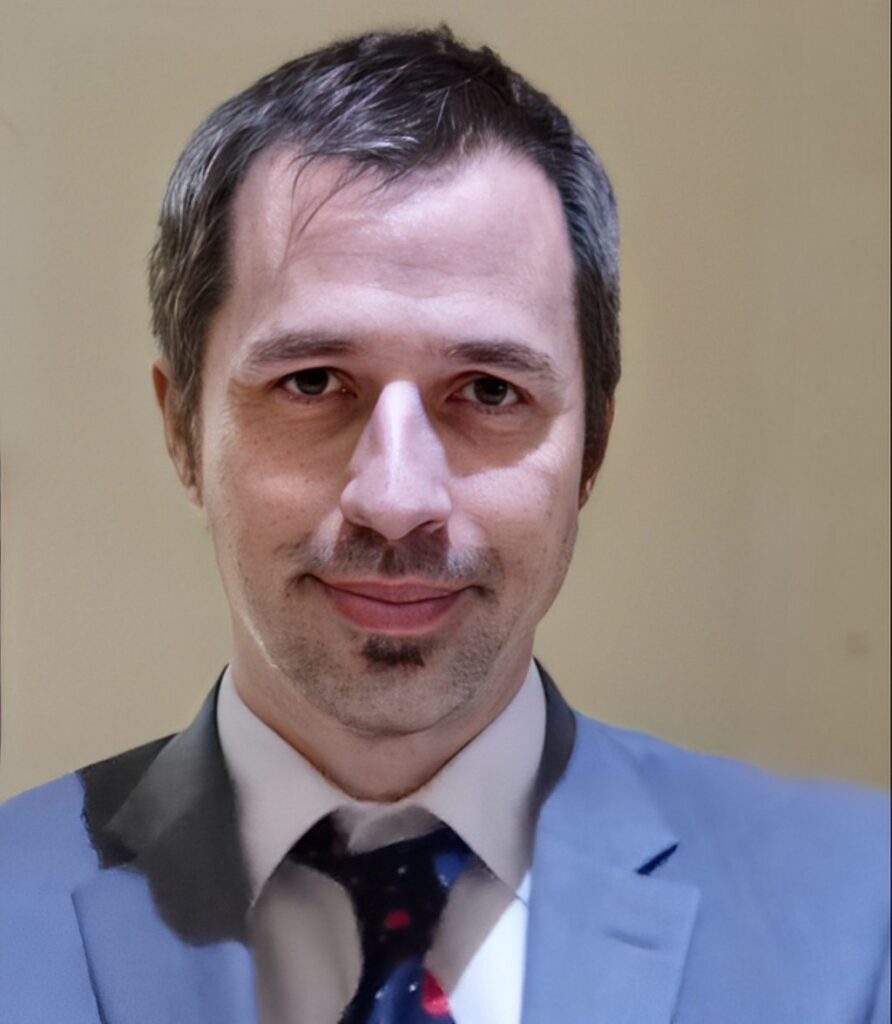Quiet Committing: Dr Benjamin Gibson Of Awesome We Can Do It Better Together On The Five Commitments High Impact Leaders Make & Keep To Themselves Daily
An interview with Karen Mangia
What did I learn from my accountability partner, and how will I be implementing this daily until my next session.
Quiet quitting is the emerging phenomenon of employee disengagement, essentially quitting on the job. What strategies do high-impact leaders deploy to motivate themselves and those around them to move from quiet quitting to quiet committing? Because, at its core, there is no change without commitment. Commitment to change ideas. Change beliefs. Change perspectives. Change routines, rituals and boundaries. Organizations change one commitment at a time. One leader at a time. As part of our series about “Quiet Committing: The Top Five Commitments High Impact Leaders Make & Keep To Themselves Daily”, we had the pleasure of interviewing Dr. Benjamin Gibson.
Dr. Benjamin Gibson, PAHM, is a pharmacist, Functional Medicine specialist, and the founder and CEO of Awesome We Can Do It Better Together LLC™. With more than a decade of experience as a pharmacist and preceptor, Dr. Gibson is innovating healthcare. Dr. Gibson aims to guide disease prevention from a holistic approach in order to lead and teach others how to live a healthy, strong, and free life. (PAHM stands for Professional, Academy for Health Care Management).
Quiet committing 5 commitments high impact leaders make & keep to themselves daily
What was the first job you had, and how did that job shape the leader you are today?
I took notes for a blind student in college. It reminded me to have attention to detail, have good customer service, and be prompt.
We’re talking about quiet quitting in this series. What’s the greatest lesson you’ve learned from a job you decided to quit?
Leave in good graces if you ever need to work in a different department. I once worked for a company in a few roles in two states. I even was a contractor for them.
Employee Engagement is top of mind for most organizations. How do you define an engaged employee?
An employee whose mission and vision align with the company.
Say more about your Employee Engagement portfolio. What’s working? What’s not working? And what are you piloting now to address the Quiet Committing trend?
Surveys are done by employees. Modeling servant leadership is working. Employee retention and morale are high. In a world of inflation, having more benefits is a challenge. Keeping sure that one is living the mission, vision, and values of the company.
As goes the leadership, so goes the team. How do you hold leaders accountable for their own level of engagement?
Having a good relationship with leadership to be able to ask the leadership how they are doing. Knowing their challenges. Finding out how one can reduce their burden, if possible. It might be as simple as coming to work fully engaged. This results in good performance. This reduces stress on the leader so the leader can be fully engaged. Maybe you should have a check list to look at, even if you do some tasks routinely.
The first phase of the pandemic ushered in the phenomenon called The Great Resignation, where employees left organizations to pursue greater meaning and purpose. Then came The Great Reshuffle, where employees left organizations to pursue promotions, pay and perks. Now we’ve entered a third phase, Quiet Quitting, where employees are deeply disengaged. What do you believe to be the key drivers of Quiet Quitting?
In all work sites you deal with many different value systems. Some are more toxic than others. One person’s “dedication to work,” is another person’s workaholism. One person’s punches of praise are another person’s assault and battery charge. When you talk about work life balance, what if you have a commitment after work, yet your boss refuses to let you leave on a timely manner repetitively? You quit. Yet, the next job may be in another time zone, and one cannot be uproot one’s life immediately, so what do they do? Come in and work less passionately the next day. Take an extra 10 minutes of lunch break since they had 10 minutes of uncompensated overtime since they are salaried.
What do you predict will be the next phase in the evolution of the employer / employee landscape?
Two things, many people are side hustling. However, if you are focusing on your side hustle you may not be fully present at work. Working two or three jobs is mentally, physically, and emotionally tiring. The workforce will be cranky.
Secondly, there will be a pressure to keep using technology. AI is here to stay, and how it impacts different professions will be innovative. Already cheating punishments have occurred from its use in schools.
What leadership behaviors need to evolve to improve employee engagement in a sustainable way?
When an employee’s experience matches the expectations, they work well. When an employee can go home relax and come back recharged, they work well. When benefits and salary let a person live well, employees work well.

Change requires commitment and happens one choice at a time. What are the top five commitments you make and keep to yourself daily that have a material impact on those you lead?
1. Remember my purpose: I am here for a reason.
2. Smiling makes my life more productive.
3. Exercise before work.
4. During my break time relax. Then when my break is over, re-engage.
5. What did I learn from my accountability partner, and how will I be implementing this daily until my next session.
What’s the most effective strategy you’ve discovered to get back on track when you break a commitment you’ve made?
If I wronged someone, I need to fix that wrong. What led me to failure? How can I do it better. Knowing the apology languages are important. If it is a standard operating procedure that needs fixing, changing it.
Thank you for sharing these important insights. How can our readers further follow your work?
Follow me on Linkedin.
About The Interviewer: Karen Mangia is one of the most sought-after keynote speakers in the world, sharing her thought leadership with over 10,000 organizations during the course of her career. As Vice President of Customer and Market Insights at Salesforce, she helps individuals and organizations define, design and deliver the future. Discover her proven strategies to access your own success in her fourth book Success from Anywhere and by connecting with her on LinkedIn and Twitter.
Quiet Committing: Dr Benjamin Gibson Of Awesome We Can Do It Better Together On The Five Commitment was originally published in Authority Magazine on Medium, where people are continuing the conversation by highlighting and responding to this story.
